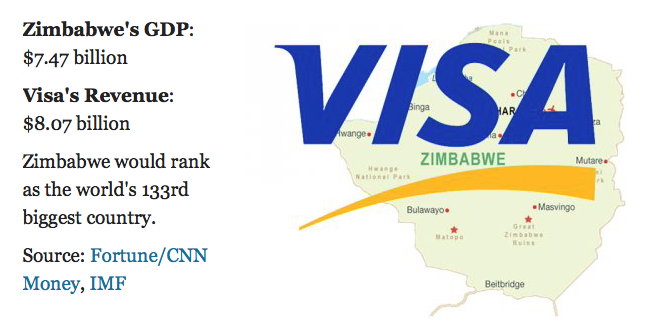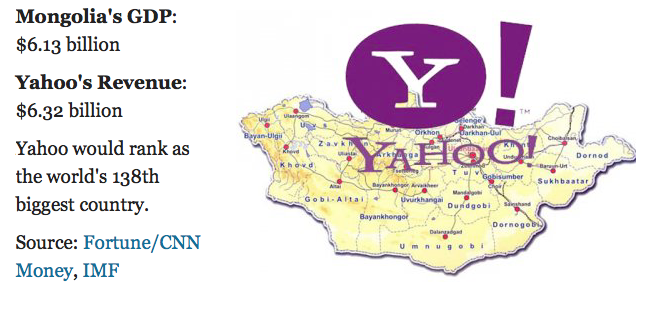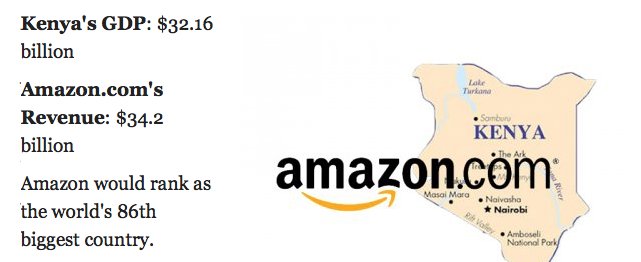Justin Garrison
When we were asked to pick a topic to blog about that about there was a few possibilities that popped into mind. As a Global Studies major I’ve always been fascinated with how issues affect the world. I juggled around the idea of talking about political influences changed around the world and how coverage can change based on the media outlets, but I felt like most people were exhausted with hearing or reading about politics. So I decided to give everyone a break and go another topic that I was familiar with being a small business owner and talk about business around the world. I love analyzing interdependencies and so I decided to blog about international corporations and their impact on countries and vice versa when Ashley and I had a similar topic to blog on.
Some of the things that related our topic to some of the aspects covered in class were how dominate western businesses and media are throughout the world. This includes countries that are so impoverished that the people building many of the components or creating the stories many be unable to buy whatever it is they have worked on. Throughout the semester I have seen how censured Americans are from obtaining some information. Most Americans only get their news or information from very few sources that are located within the western world. While this isn’t necessarily a bad thing, it makes finding information from other regions extremely difficult. This bothered me because being a political agitator I believe it is necessary for individuals to be able to have easier access to information from other countries and locations without being swarmed by information that only comes from the western lenses from companies like CNN, Fox, and Washington Post just as some examples.

I have began working on another blog because of this course that is more focused on the political aspects going on here in the country and how they are indirectly affecting many different aspect of life in multiple locations. I do not believe I’ll be blogging about MNCs after this class but if I was I would cover the attempts Mitsubishi is taking to convince its Japanese customers that even though they are being bought by Nissan they will remain they same. I would also like to talk about how many large MNCs are funding nonprofit organizations and nongovernmental organizations to help with humanitarian relief. And with that I will bring this blog to a close.
 that based on the one belt, one road initiative introduced by president Xi Jinping the Chinese government has created a new international movie industry that’s goal is to boost the exchange between China and foreign film enterprises. The communist party has already allowed Steven Spielberg and his company to partner up with China’s richest man to promote Hollywood sale in Chine. This seems like such a small thing for most people out there and so I know one person is reading this and thinking to themselves, “why’s this even important?”
that based on the one belt, one road initiative introduced by president Xi Jinping the Chinese government has created a new international movie industry that’s goal is to boost the exchange between China and foreign film enterprises. The communist party has already allowed Steven Spielberg and his company to partner up with China’s richest man to promote Hollywood sale in Chine. This seems like such a small thing for most people out there and so I know one person is reading this and thinking to themselves, “why’s this even important?” The topic I chose to write about for my blogs: Multinational Corporations and their impacts around the world, relates to various aspects of this class. MNC’s are often times involved in exploitation of the land and workers which create global journalism and coverage. In Colombia, for example, Coca- Cola and Chiquita were accused of not allowing labor unions to form and killing workers. Eventually they were involved in huge lawsuits that created substantial speculation. There has even been a documentary created titled “Banana Land” to explain the harm caused by Chiquita banana products in various Latin American countries. The most interesting thing I learned was in my last blog post where I discovered that some MNC’s have higher revenue’s than many countries. MNC impact around the world is also important to talk about in today’s modern society because they must be held responsible for their corporate social responsibility. The Amazon Rainforest, which equips us with a huge chunk of the earth’s oxygen and scientific cures for diseases, is quickly disappearing due to urban expansion projects. The oil industry is polluting the air and contaminating our water. These are all important issues that should be addressed with high priority when dealing with MNC’s. If I continued writing blogposts about MNC’s and their impact, I would focus on the social and environmental implications present today.
The topic I chose to write about for my blogs: Multinational Corporations and their impacts around the world, relates to various aspects of this class. MNC’s are often times involved in exploitation of the land and workers which create global journalism and coverage. In Colombia, for example, Coca- Cola and Chiquita were accused of not allowing labor unions to form and killing workers. Eventually they were involved in huge lawsuits that created substantial speculation. There has even been a documentary created titled “Banana Land” to explain the harm caused by Chiquita banana products in various Latin American countries. The most interesting thing I learned was in my last blog post where I discovered that some MNC’s have higher revenue’s than many countries. MNC impact around the world is also important to talk about in today’s modern society because they must be held responsible for their corporate social responsibility. The Amazon Rainforest, which equips us with a huge chunk of the earth’s oxygen and scientific cures for diseases, is quickly disappearing due to urban expansion projects. The oil industry is polluting the air and contaminating our water. These are all important issues that should be addressed with high priority when dealing with MNC’s. If I continued writing blogposts about MNC’s and their impact, I would focus on the social and environmental implications present today.

